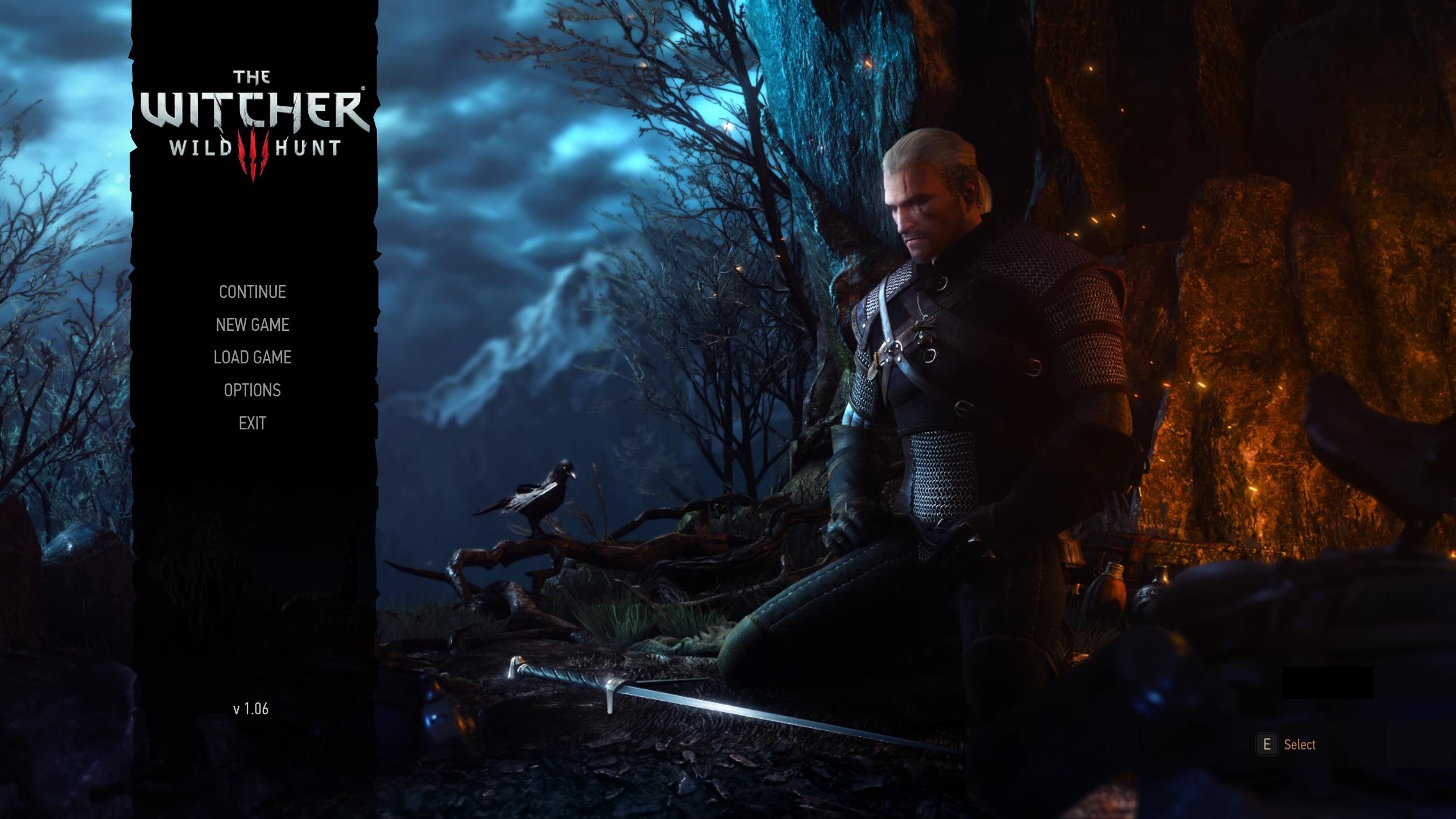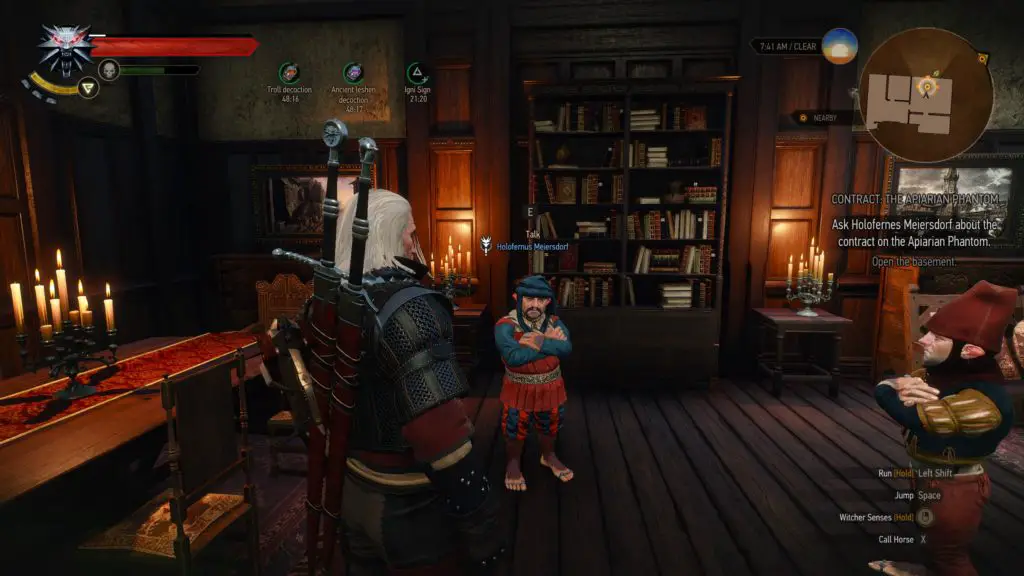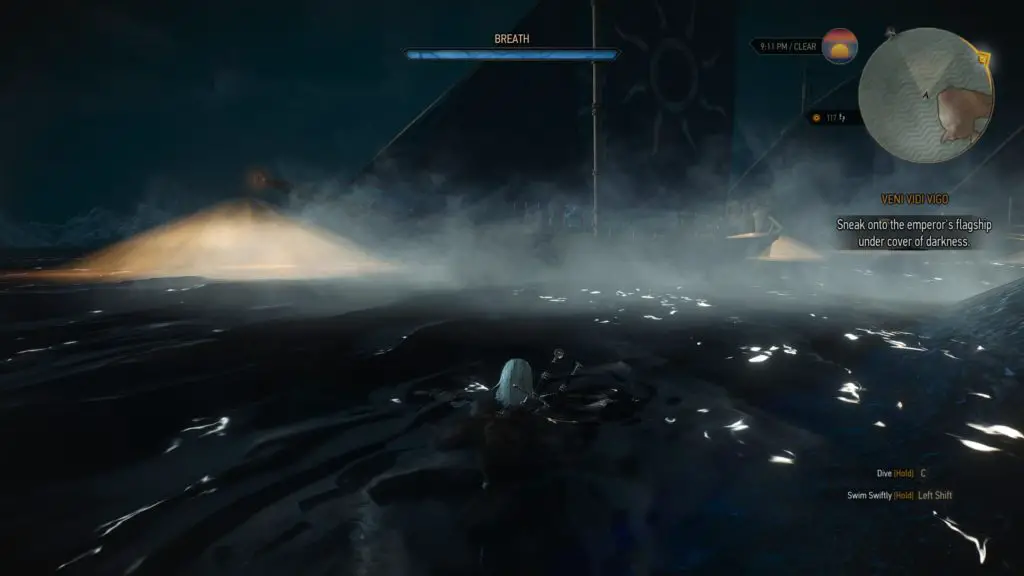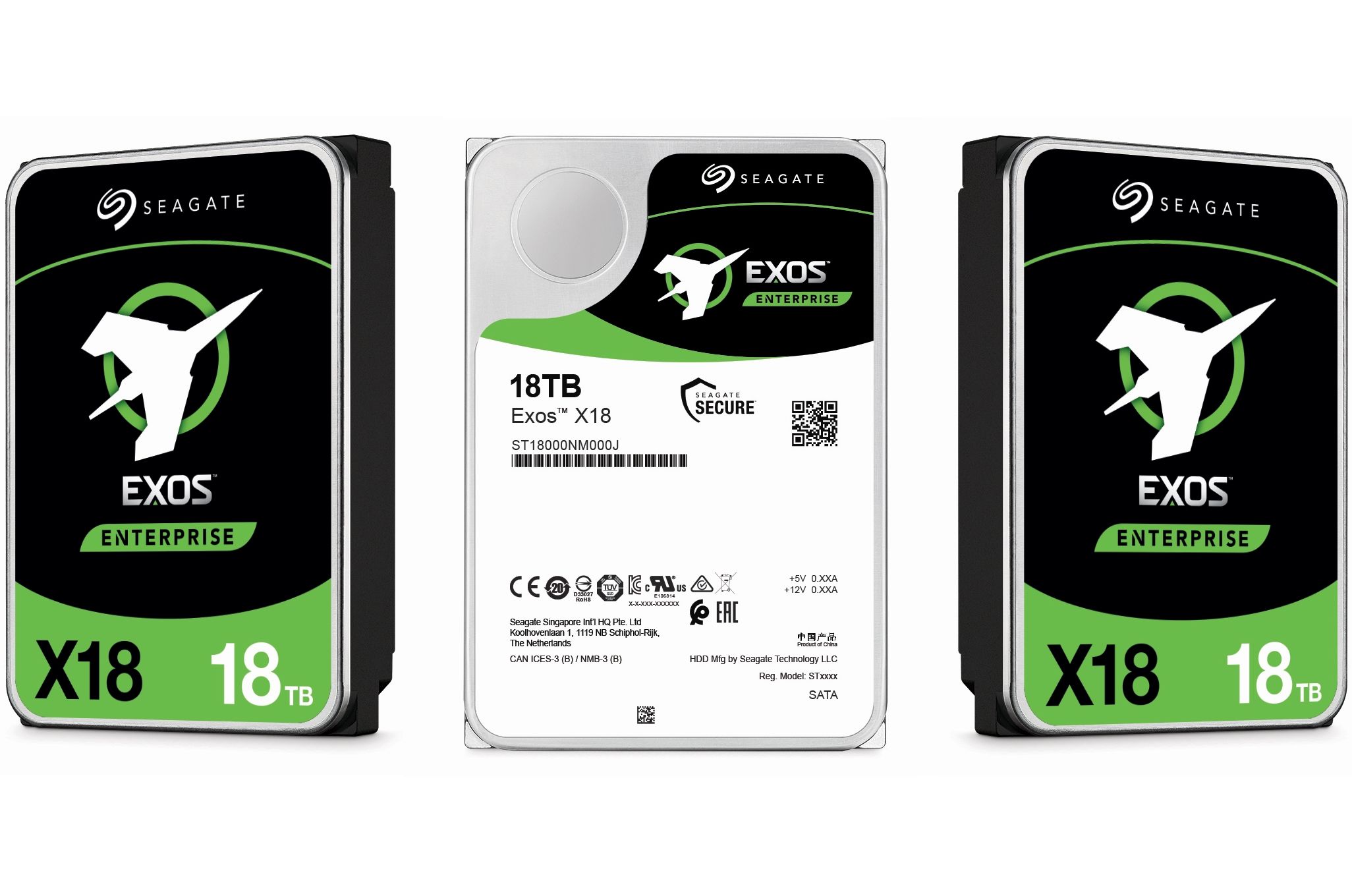Witcher 3 side quests are side quests done right. Why you might ask? There is not an overabundance of them in the questing areas, they are not all ‘go do this’ or ‘go find that’, and some help expand the Witcher lore universe. Side quests are broken down into three major categories in your Journal (where you go to look up all your quests). Quests can sometimes be picked up at towns notice board, with others found when exploring an area, finding a dead body with a note, or a key and having to explore further to find out what or where it leads to.
The first set of side quests are called Secondary Quests. These involve anything from helping the master blacksmith deal thieves and the black market to be able to get back into business, as he has been forced to sell dumplings as a form of income, helping someone collect a black pearl for his wife only to find out that the reason the man wanted the black pearl was to keep a promise he made to her when she wasn’t senile. It was his hope it would help her remember her past, especially with him, sadly it didn’t. We should note not all side quests have ‘happy’ or great endings, making it realistic that even after accomplishing something for one person, it doesn’t mean their lives will now be ‘better’ off.
The next set of quests are Witcher Contracts, the bread and butter of what ‘normal’ witcher would be getting themselves involved in. Witcher contracts usually involve speaking to the individuals who posted it, survivors if there are any, sometimes going to the site of the attack, or other times going to the suspected ‘lair’. When it comes to looking for the monster in the contract, there usually involves a good amount of using the Witcher Sense to scan the area for any sorts of clues. What is fairly interesting is how a lot of people who describe their monster end up actually being incorrect on what you as Geralt ultimately face. One time a peasant claimed a dragon was terrorizing their village, it turned out to be a Forktail (think much small dragon-lizard). If you comment it wasn’t actually a dragon the villager will pay you less, saying that the agreed upon sum was for a dragon. Witcher contracts are a good idea to do as they allow you to get those unique ingredients we mentioned previously for decoctions, as there are not many other ways to get some of those rare crafting materials otherwise. Killing a Witcher Contract monster also gives you a trophy that ends up being somewhat useless (extra 5% experience from monsters) as an example, it is more a way to prove you killed said monster and completed the contract.
The final type of side quests are classified as Treasure Hunts. Treasure Hunts deal with any of the Witcher schools gear quests or anything else which involves hunting for a treasure. A majority of treasure hunts start by finding a corpse, with a key or a letter, triggering the quest and pointing you to an area fairly close by to investigate. Using the Witcher Sense you can normally find the treasure, unlocking its contents and gaining all that is inside. The odd time a Treasure Hunt will have something of large importance, such as a decoction recipe, potion recipe, or a powerful piece of equipment (sword or armour of around that quest level).
All in all we never felt that most of the quests were filler to expand the games run time. This was not true of Dragon Age Inqusition, whose side quests and exploration felt more designed to make the game and story feel longer. Instead we got to enjoy their varying degrees of uniqueness that once again help to expand the universe, let us see what Geralt’s profession of a witcher really entails, and Geralt finally no longer commenting that he is avoiding getting involved in other peoples business when he does so frequently. Our only gripe is we had a few side quests that are bugged. Two involve Triss and idols, which the quest disappeared when we helped Triss on her side quest, but then came back later when she’s around again, yet we cannot interact with her in a way to trigger the next step of the quests. Another quest, a monster contract, we could not complete as the game will not trigger the next step along the path, making it so that we cannot find the monster and finish off the quest. We can understand having missed being able to do quests with Triss, the annoyance is the fact they came back in our journal and can’t do anything to abandon them or complete them. They should have added the ability to abandon and re-pick up Side Quests to help ‘reset’ them.
Story
If you got this far and didn’t realize it, Geralt of Rivia is the ‘main’ character of the game, with several situations where you get to play as Ciri, who has differing combat mechanics which we’ll outline a little later. We start off in what seems like a flashback involving Geralt, Ciri, and Yennefer at Kaer Morhen, the castle for the School of the Wolf Witchers. It is another unique way to allow you to have a tutorial that flows with the story of the game (if you don’t skip it). It shows some of the training a young witcher would have gone through (in this case Ciri) to gain the reflexes and combat skills to become a witcher. Eventually The Wild Hunt attacks, where we learn that Geralt was dreaming this. We’re glad he mentions that Triss, not Yennefer was at Kaer Morhen when Ciri was being trained by the Witchers. Only after having been trained for a while was Ciri taken in as a ward by Yennefer to be trained in the school of magic (the girl is a source of magic). We find out that Geralt is travelling with Vesimir, another Witcher who are on the hunt together to try to find Yennefer. We could spend quite a bit of time trying to explain who Ciri is, Yennefer, and that sort of thing but we feel the game explains it quite well, as it stays fairly true to the novels that the Witcher trilogy is based on. What we can tell you though is that Yennefer and Geralt are bound to one another based on a wish Geralt made when Yennefer was trying to capture a djinn (genie). They love one another, either authentically or magically (there is a Yennefer side quest if you choose her as a love interest), whom have a rather electric relationship, often spending years apart to only come together and love each other for a time. Geralt soon reunites with Yennefer, having to agree to work with the emperor of Nilfgaard in order to find Ciri, as he has several leads about Ciri, who has recently reappeared on their world. The novels end with Ciri leaving ‘this’ world, retelling her tales to a knight of the Camelot.
The Wild Hunt are elves from another world who travel to other worlds, enslaving some of the inhabitants, or invade and conquer the world. Ever since the conjunction of spheres, which brought monsters to this planet, only a select number of them can now ‘world hop’. The only way they can truly bring all of their race is with someone who can control the gates which connect all the worlds. That person happens to be Ciri, of The Elder Blood, and this is why they seek her. They wish to control her in order to continue their domination of worlds.
You, as Geralt, must try to track down Ciri’s whereabouts, needing to find her before the Wild Hunt does in order to stop them, hopefully once and for all. Knowing us, we tend to not want to spoil much of the story, and in this case this is all we’re going to let you know, at least from the game itself. We would guess that the story main story itself is at least 40 hours.
One thing we have to say we are blown away with, is the attention to detail the game takes with staying true (mostly) with the lore in the Witcher novel series. We spent about 7-8 days, including a long weekend where we rarely saw the light of day, where we read all of them from cover to cover. What was nice to see was that our Witcher 1 and 2 play throughs were fairly canon (at least our view on the subject). The game makes a lot of references to the novels, some players will understand without having read it as they will give you enough backstory for it to make sense, but other times, usually subtle ones, they’ll make references to the novels where we were like, ‘damn, I remember that’ and was worked in perfectly. On my honour, we can only hope that the expansion in/around Touissant will allow us have to Dandelion with us as that will just be golden. Those who have read the novels will understand both the references we made, and if not, well asks us in the comment sections and maybe we’ll enlighten you.
As a whole the game feels complete, it finishes off not only the trilogy quite well, but the entire novel series too, as the last novel never resolved anything to do with the Wild Hunt, only that Ciri had disappeared to another world, involving Camelot, and Geralt and Yennefer were together drifting on a boat to live a new chapter of their lives together. We do have a gripe though with how the game ended, namely involving the final chapter. We would have liked to have gotten more ‘backstory’ or explanation with it, perhaps they’ll expand it some in the expansion (reference dropping). The game itself, including all the exploration and side quests clocked in at 120 hours. Yep, 120 hours, how often do you see an RPG game that will give you that much mileage in one go, without half of it being about time wasted traveling or quests that feel very much like filler (we’re looking at you Dragon Age: Inquisition with your 100 hour play time).












